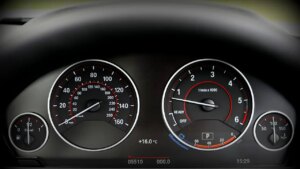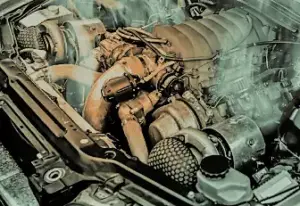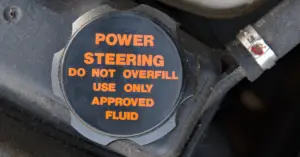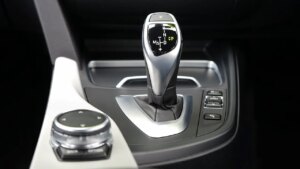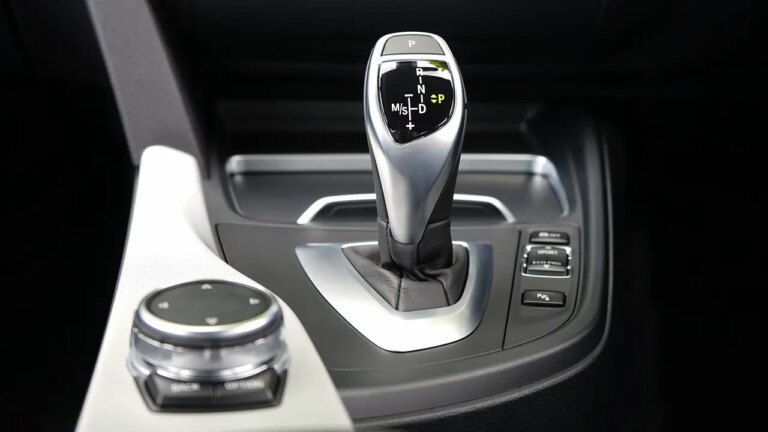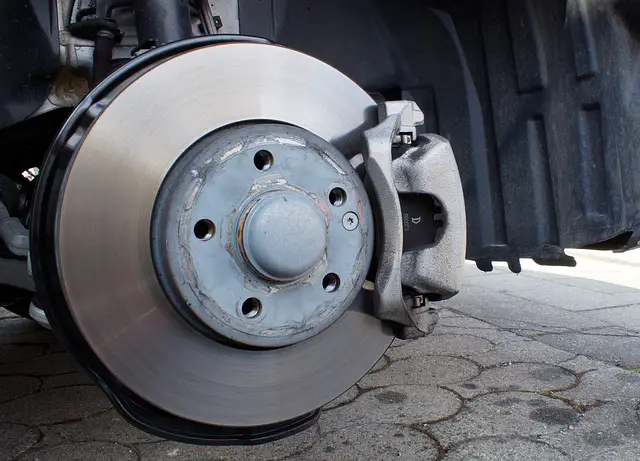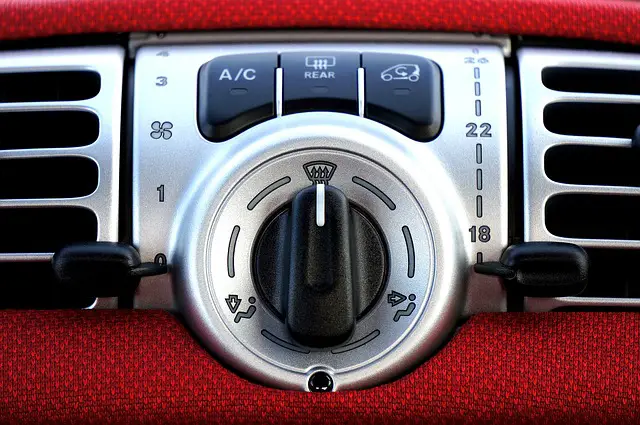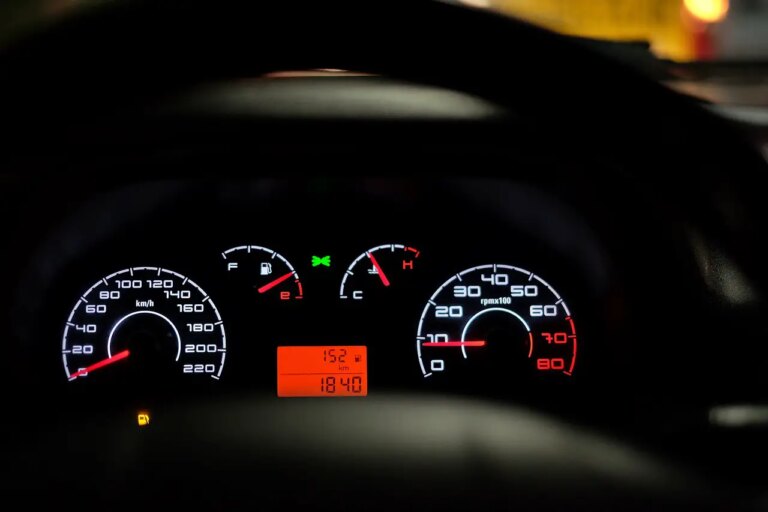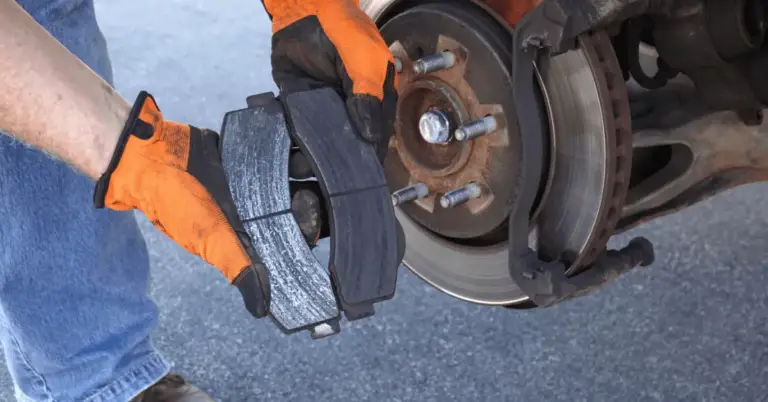A whining sound can come from a variety of parts in your car. Here we’ll examine all the common causes one by one. We’ll include the fixes and costs too.
Briefly, though, the causes are
- Worn Alternator
- Loose Drive Belt
- Pulley Bearings
- Belt Tensioner
- Transmission Issues
- Power Steering Fluid/ Defective Pump
Let’s examine each in a bit more detail:
1. Worn Alternator
The alternator is one of the essential parts of your vehicle; it converts chemical energy into electric energy and charges your car’s battery while driving. It’s the component that provides all the power to your AC, Heater, Lights, and Power Steering.
When it goes bad completely, it will leave you stranded. What Causes An Alternator To Go Bad? Troubleshooter and Fixes
Typically your alternator should last for the lifetime of your vehicle, but sometimes that is not the case, and it can get worn out earlier. Often a sign an alternator is failing is they smoke.
What normally causes the whining noise is a set of bearings within the alternator that have lost their lubrication. As they dry out, that start to wear more quickly, and as they spin fast within the alternator, they make a whining noise.
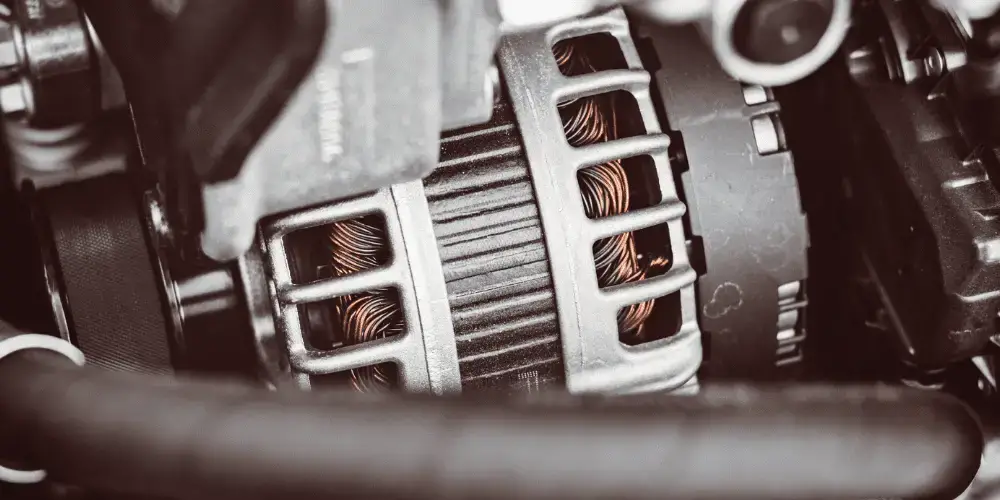
If you realize in time that it’s starting to fail, you may be able to get it repaired. Leave it too long, though other faults within the alternator will require a new one to be fitted.
You could change the bearings yourself if you’re a competent DIY mechanic. A step-by-step video explains how to do it.
Cost:
The bearings are very cheap. Expect to pay no more than $10 for a new set. A mechanic will likely charge in the region of $150 to change the bearings over for you.
Alternators vary in price depending on the type of vehicle you drive. The average cost to completely replace your alternator is around $500- $800. This includes the alternator and the labor costs too.
2. Worn Drive Belt
The drive belt that runs between your engine block and alternator could be the noise source if it’s coming from the front of your vehicle. This could mean the drive belt is slipping or wearing thin.
As the belt and alternator are close together, it can be difficult for an untrained ear to know which part is causing the noise.
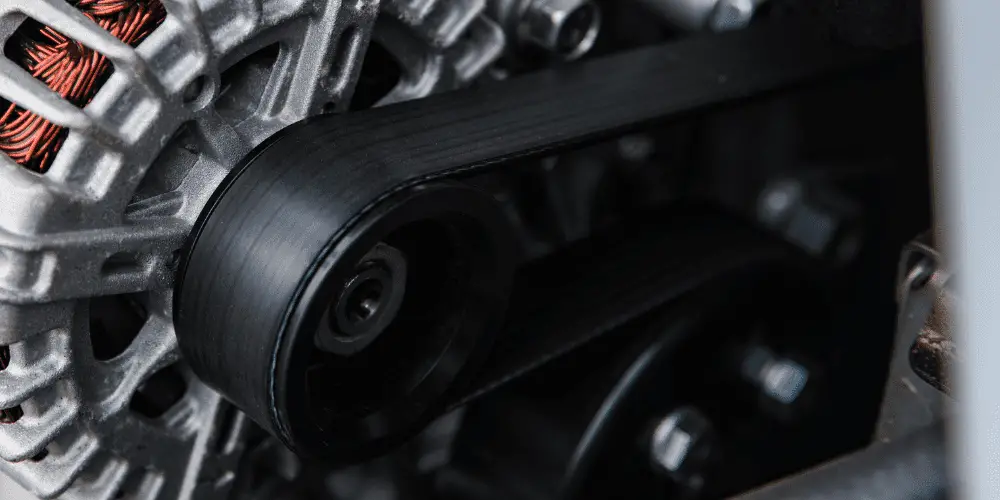
With the engine off, you can inspect the belt for signs of wear. Check to see if it’s loose too. It needs tightening up if you can turn the belt more than 45 degrees between the forefinger and thumb.
How Many Serpentine Belts Are In A Car?
Cost:
Expect to pay between $100 and $150 for a replacement belt, including labor.
As you’ve noticed, this is much cheaper than replacing the alternator. The good news is that a belt is more likely to be the source of the whining noise.
3. Worn Idler Pulley Bearings
Over their lifetime, idler pulleys provide tension and guide the belt along its journey between the engine and the alternator millions of times.
As you’d expect with that workload, they can become worn, and when they do, they’ll slip from their position along the drive belt and create a whining noise.
It’s time to get the pulley replaced as if the belt comes off, not only could your alternator stop charging – leaving you stranded – but it could damage other parts in its vicinity.
Cost: It will cost between $150 and $300 to have your pulley bearings replaced. If you don’t get it fixed quickly, though, it could cost more in other damages.
4. Belt Tensioner
If you notice fraying on the sides of your drive belt or extra wear on your pulleys, along with the noise, your issue may be the belt tensioner.
The tensioner is what holds the belt in place. If the belt tensioner isn’t working, your drive belt can’t do its job, and the alternator won’t charge.
Cost: Typically, you can have the belt tensioner replaced for $100 to $200. The part is cheap, but labor increases the cost.
A competent DIY’er should be able to change this over and save on labor costs. There’s a great guide to doing it here in this video.
5. Transmission
If you notice the whining noise only when accelerating, the problem might be with your transmission. Transmissions are complicated – which means expensive too! – luckily, the causes above are more likely to be the reasons for the whining.
The sound can point to a few different issues with your transmission.
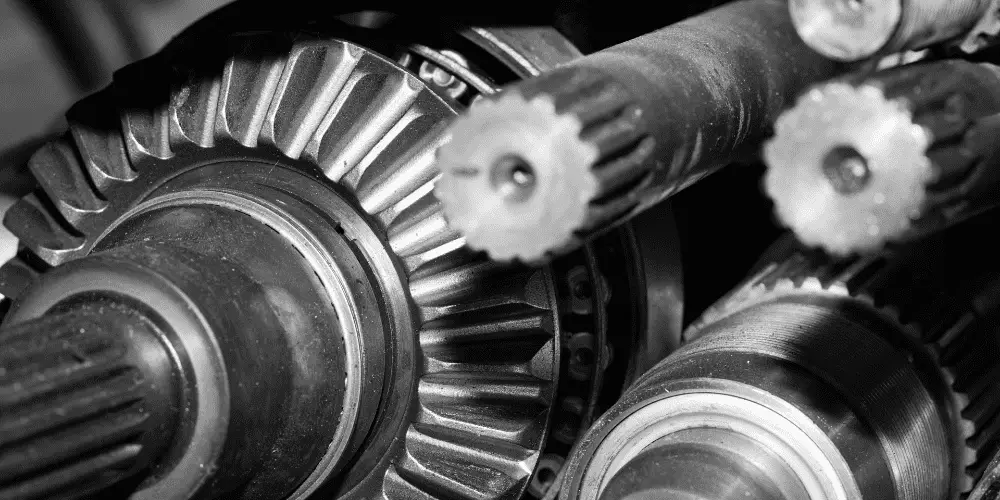
If the whining noise happens whenever your vehicle is in gear, it points to an issue with the torque converter.
If the sound worsens when you are reversing, this points to the fluid line most likely being clogged.
Issues with your transmission should be taken seriously, as they could lead to your vehicle overheating.
How so?
When the transmission starts to slip, much more heat is generated. This heat has to be absorbed by the cooling system already working hard to dissipate normal amounts of heat from the engine.
Often the transmission fluid is leaking or needs topping up which is much cheaper in parts and labor.
Cost – It is hard to judge how much transmission issues will cost you. They range from $100 to $1500, depending on how serious what part needs replacing. Taking your car to your trusted mechanic and finding the cause is best.
Hopefully, all that’s needed is a transmission fluid change, but the cost can rise sharply to the higher end of the estimate if the parts are faulty.
6. Low Power Steering Fluid or Bad Pump
If you notice the whining noise only when the wheels turn, the problem is likely low power steering fluid.
You may also notice a difference in how your steering wheel reacts and functions. If it is more difficult to turn, you have found your problem.
This is a quick fix as long as there isn’t a leak in the fluid line. If the problem reoccurs soon after adding more fluid, there is a leak in the fluid line.
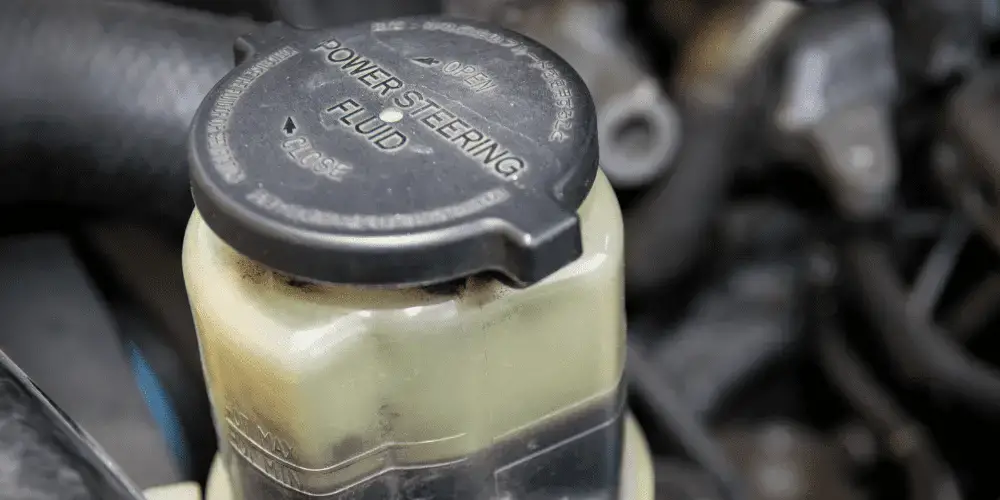
It isn’t unsafe to drive your vehicle when your power steering fluid is low, but long-term, it could cause damage to the pump. Avoid costly repairs down the road, and quickly fix your power steering fluid.
If the level is satisfactory and you still hear the whine when you turn the wheel, your power steering pump is likely defective.
Cost: Power steering fluid is cheap and can be purchased at many stores. If the problem is your fluid line, you will need to have that replaced, and it will cost between $150 and $350.
The worst scenario is your car needs a new pump. Expect to pay $400 to $800, including parts and labor, for a fitted replacement depending on the make and model of your car.
In Conclusion
Whirring and whining sounds frequently change with engine speed and can signal various problems, such as a failing water pump, a broken power steering pump, insufficient power steering fluid, a failing alternator, or difficulties with the air-conditioning system.


